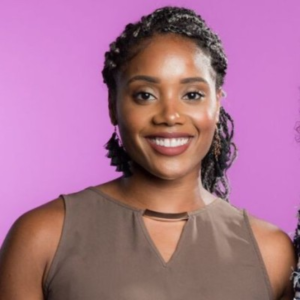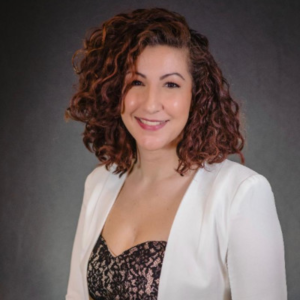Introduction to Change-Making in the Workplace Series
In April, Tufts Career Center’s Career Fellows Ismenia and Jesse moderated a panel on Change-Making in the Workplace. We will be breaking down that conversation into smaller blog posts, but if you are interested in watching the whole panel, you can do so here!
Here is the premise for the discussion: We continue to hear stories of underrepresentation and inequality in and around the workplace. How are companies responding to these longstanding injustices in their own workplaces, society and beyond? Learn about what it means to be a changemaker in the workplace and gain insight into what sort of influence you can have.
Panelists Sharing Thoughts, Insights, and Experiences
- Reema Elghossain, Vice President at 4A’s Foundation
- Phuong Ta ’16, Executive Search Consultant at Isaacson, Miller
- Gabrielle (Gabby) Thomas ’13, Diversity, Inclusion, & Belonging Program Manager at HubSpot
Qualities of a Successful Change-Maker
You have all mentioned passion for this type of work. For individuals interested in DEI and working towards positive change in the workplace, what types of skills and qualities would you suggest we start cultivating to be successful in change-making when we enter the workforce, whether DEI is officially part of our roles or not?
 Gabby: When we got this question, I thought about it and then I hope it is not in total opposition to what Reema was saying about data, but data is a huge thing, both qualitative and quantitative. You cannot try and make business impact without it. So, thinking about how to be data-minded, but also thinking about the story that you’re trying to tell, but also what is the story that is going to be most compelling to that business leader? Because really what they are thinking about is how can we make the most scalable business impact. While certain situations might be awful, they could be one-off, does that really mean it is a trend? So how can we think about making the biggest amount of impact, but also understanding that it is inches, not miles, as Reema said, but knowing who you are speaking to and who is your audience now. That does not mean you cannot use the same data or information, but it is how you really present it. You have to make sure people are hearing you and people hear different things. With this work, while it can be so passion driven, you do need to kind of back it up with data. So, one quality is always being data-minded to really help you tell your story in a way that the other person is going to hear it and listen.
Gabby: When we got this question, I thought about it and then I hope it is not in total opposition to what Reema was saying about data, but data is a huge thing, both qualitative and quantitative. You cannot try and make business impact without it. So, thinking about how to be data-minded, but also thinking about the story that you’re trying to tell, but also what is the story that is going to be most compelling to that business leader? Because really what they are thinking about is how can we make the most scalable business impact. While certain situations might be awful, they could be one-off, does that really mean it is a trend? So how can we think about making the biggest amount of impact, but also understanding that it is inches, not miles, as Reema said, but knowing who you are speaking to and who is your audience now. That does not mean you cannot use the same data or information, but it is how you really present it. You have to make sure people are hearing you and people hear different things. With this work, while it can be so passion driven, you do need to kind of back it up with data. So, one quality is always being data-minded to really help you tell your story in a way that the other person is going to hear it and listen.
 Phuong: To be honest, when I first got invited to be on this panel, I was a bit confused because I think I do not identify with being a change-maker in the workplace. I think for me, when I hear the word, it is easy to imagine someone who does some big work, being a disruptor, come to shake things up and certainly that can be one meaning of the label. Then I remembered having this conversation with a friend and she shared with me a map by Deepa Iyer about the roles that we can play in a social change ecosystem, so something like Gabby mentioned. Disruptive is one of those roles, but there are also other important roles that you can play to impact change, storyteller, healer, builder, etc. and for me, I see myself as a guide, a caregiver, and a builder.
Phuong: To be honest, when I first got invited to be on this panel, I was a bit confused because I think I do not identify with being a change-maker in the workplace. I think for me, when I hear the word, it is easy to imagine someone who does some big work, being a disruptor, come to shake things up and certainly that can be one meaning of the label. Then I remembered having this conversation with a friend and she shared with me a map by Deepa Iyer about the roles that we can play in a social change ecosystem, so something like Gabby mentioned. Disruptive is one of those roles, but there are also other important roles that you can play to impact change, storyteller, healer, builder, etc. and for me, I see myself as a guide, a caregiver, and a builder.
For example, I shared that I work with a lot of women, people of color in my work, and people from first-gen background, many of them have not had the experience with executive search process. They might not feel comfortable or be as outspoken when talking about their accomplishments and being a first-gen student and immigrant myself, I know firsthand how difficult it can be to brag about ourselves because we are raised to be humble. So in my work with them, I can try to guide them through the process, trying to advocate for them in front of my client, trying to let them to add value to their development, so even if they do not end up being hired by my client, our time working together still means something to them. I feel like that is one role I can play instead of just changing what the whole culture of my industry is about, that work takes time. And that is what takes a lot of time and not just one person can do that.
 Reema: Gabby is absolutely right; data is so important. I do not always like it, but data is so important. It is a fact. You cannot just go into talk to any CEO or leader and be like, “listen you have to care” and they are going to say “okay I’ll give you four billion dollars for this initiative.” They are not going to do that. You have to show the data and why the facts matter, and you also have to show that there is a problem with data as well too. I am just glad I do not have to be the one who does all the research and data because that is not my thing.
Reema: Gabby is absolutely right; data is so important. I do not always like it, but data is so important. It is a fact. You cannot just go into talk to any CEO or leader and be like, “listen you have to care” and they are going to say “okay I’ll give you four billion dollars for this initiative.” They are not going to do that. You have to show the data and why the facts matter, and you also have to show that there is a problem with data as well too. I am just glad I do not have to be the one who does all the research and data because that is not my thing.
For skills and qualities to succeed in this work, there are so many components, but a skill set is one. First, I think is understanding what your core values are, I think it is really important to know where you stand in certain areas and what are your core values. Really figure out what those are, because what you are passionate about and why are going to connect you to doing this work. It is not easy, even if you are just an employee, the different roles you play in this work can vary. Your role could be simply, I am just going to be a good person and try to create positive impact around me and my team. It does not have to be “I’m going to be the leader of the ERG” either but find out what role it is that you play and start finding your voice. I think knowing your role and your voice is a big skill set and knowing who you can talk to, where you can share what you are feeling and what is bothering you, and if you see something being that ally. So I think a big skill set is finding your voice and finding a place where you can feel comfortable at work to be able to talk about what is important to you.

